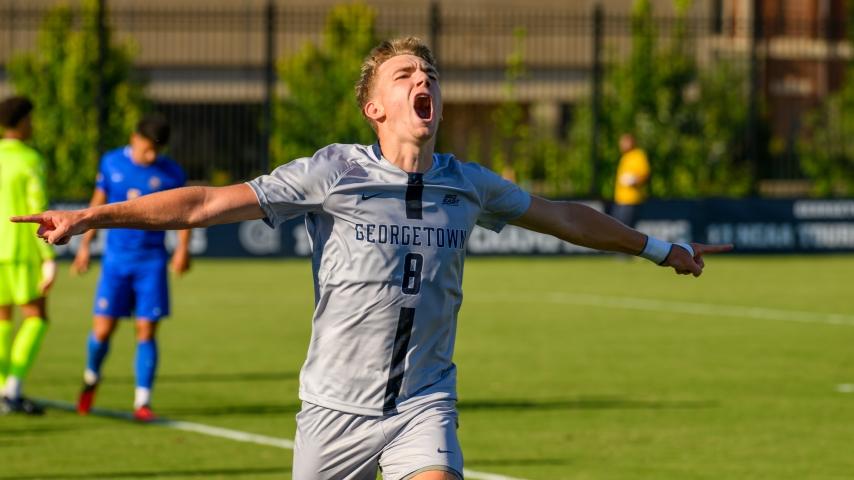Balancing college soccer with a demanding academic path is no easy task—especially if you're pursuing a STEM degree (Science, Technology, Engineering, or Mathematics). Between practices, games, travel, labs, exams, and deadlines, it’s easy to feel overwhelmed. But here’s the good news: it is possible—and many student-athletes do it successfully every year.
In this blog, we’ll explore the challenges and strategies of managing both commitments, and how players can stay focused, organized, and competitive on and off the field.
Why STEM and Soccer Can Work Together
Many student-athletes are told they have to choose between serious academics and high-level athletics. That’s simply not true. In fact, college coaches value players who can handle both. Why? Because it shows:
- Strong time management skills
- Discipline and work ethic
- Long-term planning
- Mental focus and responsibility
These are exactly the qualities coaches look for in recruits.
The Main Challenges of Combining STEM and Soccer
Pursuing a STEM major while playing college soccer comes with specific demands:
1. Time-Intensive Coursework
Many STEM programs require labs, research projects, and group work in addition to lectures. These often extend beyond the typical class schedule.
2. Limited Flexibility
Soccer schedules may conflict with key academic activities like lab times, academic events, or evening classes—especially during the fall season.
3. Mental Fatigue
Balancing problem-solving, long study hours, and physical performance can lead to burnout if not managed well.
Tips to Balance STEM and College Soccer Successfully
1. Plan Your Schedule in Advance
Work with your academic advisor and coach early to plan your class schedule around your soccer commitments. Try to:
- Schedule labs on off-days or lighter training days
- Avoid evening classes when possible
- Spread difficult classes across semesters
If you're entering your first year, read this guide to prepare for your first season as a college soccer player.
2. Use Every Hour Wisely
In STEM + soccer life, every hour counts.
- Study during travel time on buses/flights
- Use recovery sessions or downtime for reading or reviewing notes
- Limit distractions (especially phone use during study blocks)
Tools like Google Calendar, Todoist, or Notion can help you stay organized.
3. Communicate With Your Professors and Coaches
Don’t wait until a conflict arises—talk early.
- Let professors know your soccer schedule at the start of the semester
- Ask for flexibility before missing labs or quizzes due to games
- Keep your coach informed about academic deadlines and workload
Both sides will usually support you if you show initiative and responsibility.
4. Learn to Say No
Balancing soccer and a STEM degree means you won’t always have time for everything. You might have to turn down some social events, internships during the fall, or club commitments.
It’s about short-term sacrifice for long-term gain. The key is to protect your priorities without burning out.
5. Prioritize Sleep and Nutrition
STEM demands brain power. Soccer demands physical energy. If you’re not sleeping or fueling your body properly, both will suffer.
- Aim for 7–9 hours of sleep consistently
- Eat balanced meals and hydrate (especially during travel or exams)
- Avoid energy drinks and all-nighters—they create short-term boosts but long-term crashes
6. Use Campus Resources
Take advantage of:
- Academic tutoring and STEM support centers
- Mental health counselors or performance coaches
- Study groups with other student-athletes
There’s no shame in asking for help. In fact, using your resources is a sign of maturity.
If you ever feel overwhelmed or mentally drained, this article may help: The Role of Mental Health in College Soccer.
Bonus: Talk About It in Your Recruiting Process
If you’re being recruited and want to study engineering, biology, or computer science, don’t hide it—highlight it. Let coaches know:
- You’re committed to both athletics and academics
- You’ve done the research on their academic programs
- You’re capable of managing your time
Coaches respect players who aim high, as long as you also show a realistic and committed attitude.
To stand out even more, check out How to Impress College Coaches at Showcases and Tournaments.
Final Thoughts
Balancing college soccer with a STEM degree isn’t easy—but it’s absolutely achievable. With strong organization, discipline, and communication, you can thrive in both your academic and athletic careers.
The journey will be intense, but also rewarding. And when you graduate, you’ll have something incredibly powerful: a high-level education and four years of competitive soccer experience to prepare you for whatever comes next.
.svg)


.webp)







